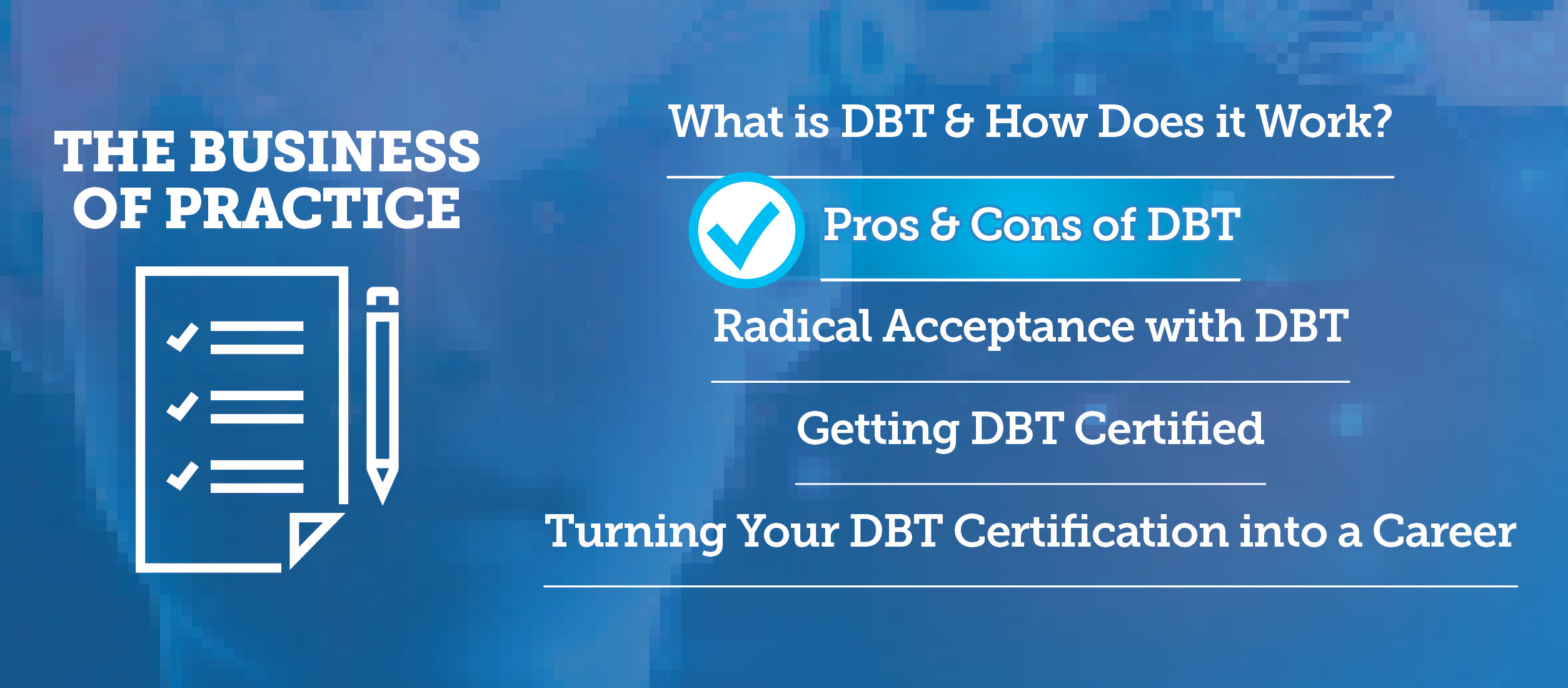Benefits of DBT
|
- DBT is evidence-based. It goes beyond mental health illness and improves individuals’ quality of life. It reduces anxiety, depression, trauma, and stress symptoms and decreases suicidal and self-harming thoughts and behaviors. |
|
- DBT has been adapted for various populations, mental health problems, and settings; including, psychosis, mania, substance use, eating disorders, adolescents, and forensic settings, to name a few!
- DBT incorporates Zen Buddhist mindfulness practices, which may be appealing to consumers who want to work toward spiritual fulfillment.
- DBT teaches consumers that thinking is dialectical, not “right” or “wrong,” evaluating and integrating contradictory ideas.
Criticisms of Dialectical Behavior Therapy
- DBT requires a significant time commitment (from the consumer and the clinician).
- There are many skills in DBT, which may be overwhelming. As a result, consumers who may benefit from it may find it overly complex and unwilling to try.
- DBT involves homework that may not be well suited for everyone.
- DBT is structured and has strict boundaries that must be set and followed.
- There is no formal trauma processing in DBT, which may be a necessary component of treatment for some clients to recover from a traumatic experience(s) entirely.
- Certain facets of DBT are derived from Eastern religious philosophies; therefore, some clients whose religious values are Western (e.g., Christianity, Judaism, and Islam) may object to Zen Buddhist teachings.
- DBT clinicians must be highly trained mental health professionals as there is the possibility for increased risky behavior throughout treatment.
--
For more information, see our post What is DBT and How Does It Work? or visit the next blog in our DBT series Radical Acceptance with DBT.








